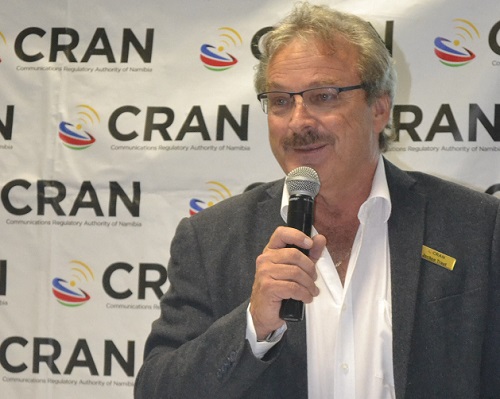
Number Portability stalls amendment of Numbering Plan regulations

Number portability, the luxury that enables telephone customers to retain their number even if they switch operator, has become a hot debate since the Communications Regulator of Namibia, CRAN, hosted a public hearing on 25 July to introduce the process to amend the so-called National Numbering Plan.
At this hearing, CRAN’s Chief Operations Officer, Jochen Traut, gave an overview of the National Numbering Plan to make provision for number portability
The Legal Advisor of one of the fastest-growing privately-owned telecommunications companies, Nadine Boonzaaier of Paratus Telecom, told the Economist that despite the announced intention to amend the Regulations of the National Numbering Plan, the proposed regulations can only be enforced after all telecommunications operators are aligned in terms of the National Numbering Plan.
In a recent statement, CRAN said the deadline for the implementation of the National Numbering Plan was on 31 March 2017. This first version of the gazetted Numbering Plan did not make provision for Number Portability, instead it deals mostly with the allocation of number ranges to all the telecommunications companies.
From a technical consideration, Paratus Managing Director, John D ‘Alton explained that ten digit numbers are allocated in ranges to each individual operator. Each range of numbers consists of 10 million telephone numbers, creating huge opportunity between the seven allocated 08 ranges to exchange numbers. D ‘Alton stated that number portability should be easy in theory, as long as all operators are aligned accordingly. However, there are two technical solutions, both of which requires a transformation of the current numbering system.
“Number Portability will not be enforceable and the amended regulations cannot be promulgated until all operators are aligned in terms of the technical requirements” confirmed Boonzaaier. The proposed amended regulations were gazetted on 30 June this year. These amendments deal exclusively with Number Portability, Numbering License Fees and the Procedures for Number Licences. The deadline for response by the public was on 25 July, the day CRAN convened the public hearing.
CRAN, however, has the authority to invoke Section 114 and 115 of the Communications Regulatory Authority Act which allows for penalties. But it is an open question whether the regulator will act against telecommunications operators as it has to treat all operators in the same manner. “As custodian of the Communications Act, CRAN may not act prejudicially and should act fairly in consideration of any potential penalty applications” he said.
Recently CRAN indicated that one year will be allowed from the time of promulgation of the amended regulations to the deadline for compliance but it did not indicate when promulgation can be expected.
“All operators need to align their operations in terms of the Number Plan to provide for Number Portability” D ‘Alton said.
The National Numbering Plan is country specific, having to conform to the world format for the allocation of telephone numbers as regulated by the International Telecommunications Union, a United Nations Agency. Namibia’s National Numbering Plan must also conform to the broader SADC Numbering Plan for ratification by the ITU.










































